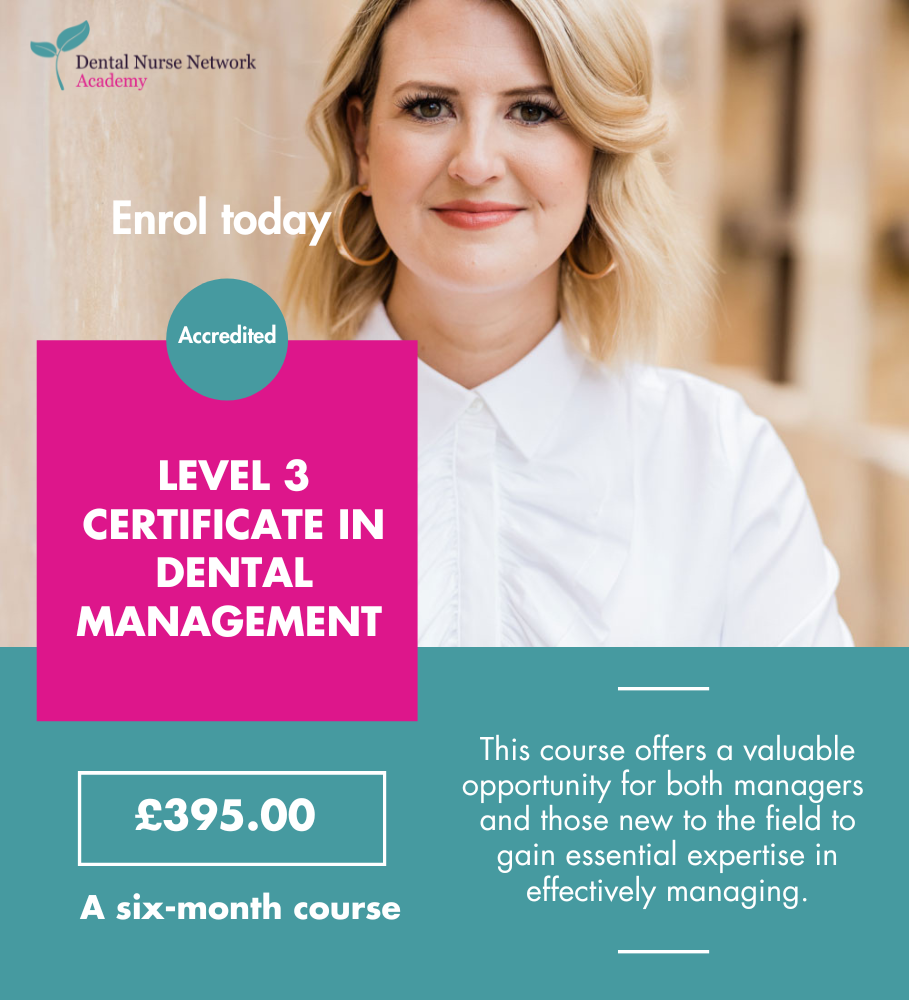 Diary of a Treatment Coordinator (TCO) is based on real life stories. The practice and TCO is not mentioned for confidentiality reasons.
Diary of a Treatment Coordinator (TCO) is based on real life stories. The practice and TCO is not mentioned for confidentiality reasons.
The main part of my job is focused on assisting patients in their decision to chose the most appropriate treatment, and to make sure that they fully understand what the treatment will involve, the time frame and costs.
I was a dental nurse prior to becoming a treatment co-ordinator, so I am able to explain different procedures and what will be involved.
I am fortunate that I still nurse from time to time, meaning that I can keep up-to-date with the procedures and can learn of any new techniques.
Due to all the different adverts, TV programmes and the internet, many more people are aware of the dental treatments that are available nowadays. The internet, or ‘Dr Web’ as it has been renamed at our practice, can cause more trouble than it’s worth! Patients can ‘self-diagnose’ just from typing their symptoms into a search bar. I am now seeing a large number of patients that visit me knowing exactly what treatment they want, and just want an idea of the costs involved.
I had a married couple visit me for a consultation a few weeks back. They had been watching a make-over show on television and had decided that they both wanted to have upper and lower clearance, 6 implants per jaw and fixed 12 unit bridges. They also knew that in some cases temporary bridges could be fixed on the day of the implant placement. Just from watching a television show, they had decided that this was exactly the treatment that they both wanted and were happy to pay whatever was charged to achieve their end goal. From talking to both patients, I noticed that they had most of their natural teeth, which weren’t giving them any problems, but they had decided to have this treatment to prevent any problems in the future. On examination, all teeth were found to be sound and only one patient required a small filling. They had made their decision knowing that the treatment was not necessary, but in the belief that the ‘up-keep’ of fixed bridges would be less than that of natural teeth.
I now needed to carefully explain that the dentist was not prepared to extract healthy teeth just as a preventative measure. I strongly discouraged any unnecessary treatment and stressed that for fixed bridge work, 6 monthly check-ups with our dentist and a hygienist visit every 3 months was still required. Therefore, looking after the implants and bridges was no different than looking after their natural teeth. I also explained that as they were both smokers, the risk of the implants failing was far higher than for non smokers and that we therefore strongly advised against their choice of treatment. Sadly the television programs that promote such interest don’t always give the full facts behind the treatments available.
Most of the patients I see would wish for nothing more than their natural teeth back, but in some extreme cases, there is no other option but to extract a large number of teeth.
One of the very first patients that I saw when I had just finished my training as a TCO was desperate to have all her teeth extracted. Her teeth were heavily restored and were causing her so many problems. She had been suffering with recurrent abcesses that were continually being treated with antibiotics. Due to the problems she was experiencing, she understandably did not want further treatment to her natural teeth and would not even consider implants. Having had no denture experience before, we were concerned that she would struggle to cope with complete upper and lower dentures. As the referral had been made by another dentist, who had already agreed to the extraction of her teeth, we agreed her treatment plan and arranged to make the immediate dentures, and then the permanent dentures after healing.
We regularly see this patient for her annual review appointment and she still maintains that having her natural teeth extracted was the best thing she could have done. She said that she felt almost instantly better following the extractions, as the infections around her teeth had made her feel so unwell. This was obviously the right treatment plan for her, so therefore was clinically necessary.
In both of these cases, we could have easily made more money by selling treatment that was either unnecessary or more that the patient wanted , but that is not what being a treatment co-ordinator is about. Yes, sales is of course a large part of the job, but so is providing an honest and clinically viable service to each patient based on their individual needs.

